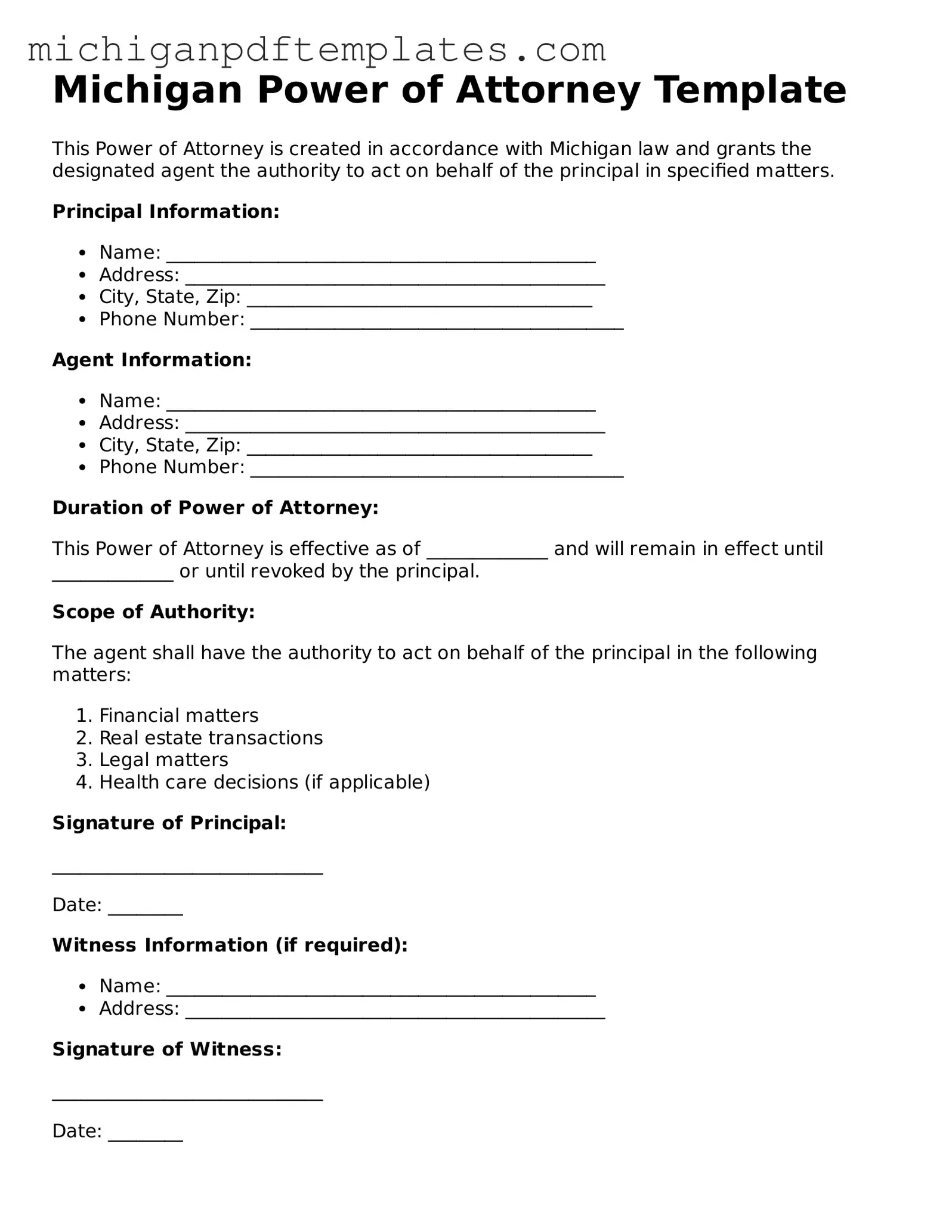Legal Michigan Power of Attorney Template
A Michigan Power of Attorney form is a legal document that allows an individual to appoint someone else to make decisions on their behalf, especially regarding financial or medical matters. This arrangement can provide peace of mind, ensuring that your wishes are respected even if you cannot communicate them yourself. Ready to take control of your future? Fill out the form by clicking the button below!
Get Your Form Now

Legal Michigan Power of Attorney Template
Get Your Form Now

Get Your Form Now
or
▼ PDF Form
Finish this form quickly and move on
Fill in and complete Power of Attorney online quickly.